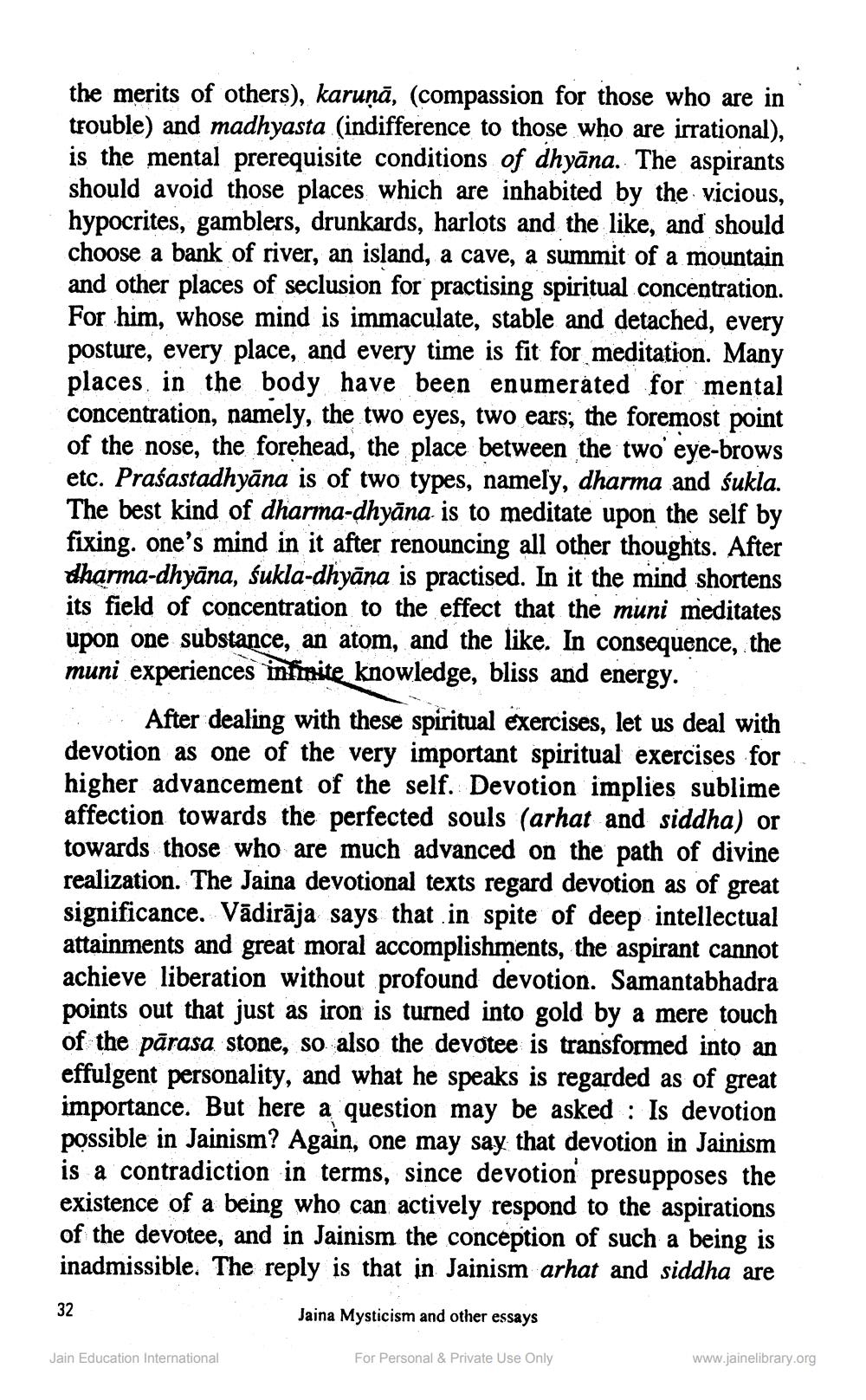________________
the merits of others), karuņā, (compassion for those who are in trouble) and madhyasta (indifference to those who are irrational), is the mental prerequisite conditions of dhyāna. The aspirants should avoid those places which are inhabited by the vicious, hypocrites, gamblers, drunkards, harlots and the like, and should choose a bank of river, an island, a cave, a summit of a mountain and other places of seclusion for practising spiritual concentration. For him, whose mind is immaculate, stable and detached, every posture, every place, and every time is fit for meditation. Many places, in the body have been enumerated for mental concentration, namely, the two eyes, two ears, the foremost point of the nose, the forehead, the place between the two eye-brows etc. Prasastadhyāna is of two types, namely, dharma and śukla. The best kind of dharma-dhyāna is to meditate upon the self by fixing. one's mind in it after renouncing all other thoughts. After Pharma-dhyāna, sukla-dhyāna is practised. In it the mind shortens its field of concentration to the effect that the muni meditates upon one substance, an atom, and the like. In consequence, the muni experiences inimite knowledge, bliss and energy.
After dealing with these spiritual exercises, let us deal with devotion as one of the very important spiritual exercises for higher advancement of the self. Devotion implies sublime affection towards the perfected souls (arhat and siddha) or towards those who are much advanced on the path of divine realization. The Jaina devotional texts regard devotion as of great significance. Vādirāja says that in spite of deep intellectual attainments and great moral accomplishments, the aspirant cannot achieve liberation without profound devotion. Samantabhadra points out that just as iron is turned into gold by a mere touch of the pārasa stone, so also the devotee is transformed into an effulgent personality, and what he speaks is regarded as of great importance. But here a question may be asked : Is devotion possible in Jainism? Again, one may say that devotion in Jainism is a contradiction in terms, since devotion presupposes the existence of a being who can actively respond to the aspirations of the devotee, and in Jainism the conception of such a being is inadmissible. The reply is that in Jainism arhat and siddha are
32
Jaina Mysticism and other essays
Jain Education International
For Personal & Private Use Only
www.jainelibrary.org




